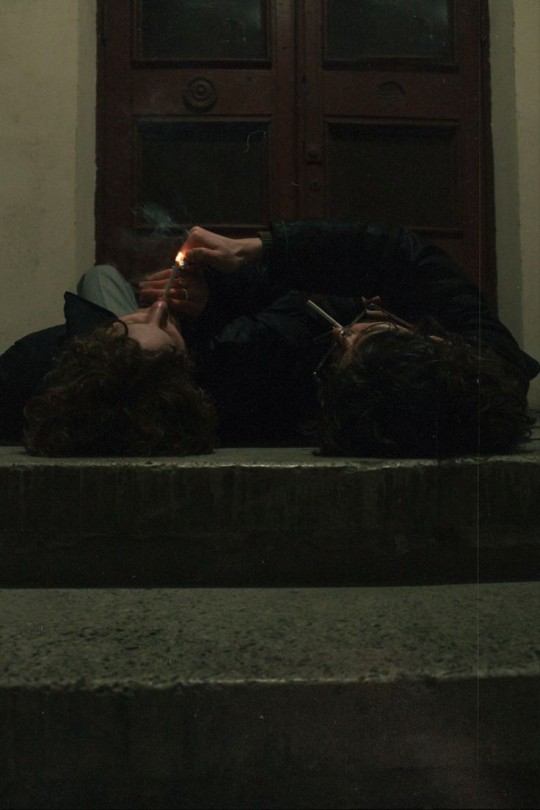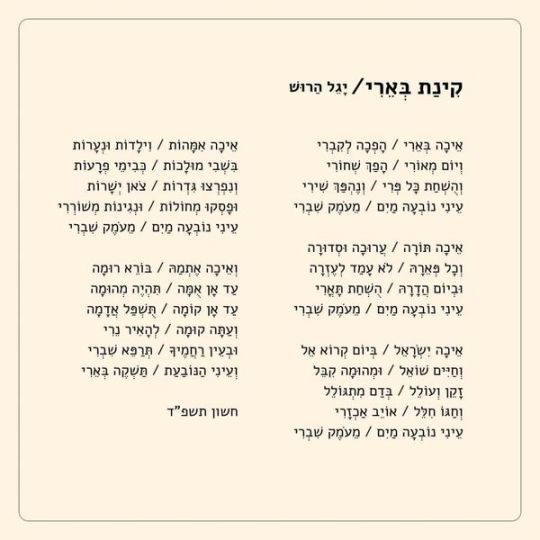#mark eliyahu
Explore tagged Tumblr posts
Text
#my post#postlarım#quotes#alıntı#alıntılar#spilled ink#tumblr türkiye#spilled thoughts#edebiyat#deliliğe övgü#erasmus#kitaplığımdan#kitap kurdu#kitaplık#kitaplar#kitap alintilari#kitap alıntısı#kitap alıntıları#kitap#mark eliyahu#journey#Spotify
10 notes
·
View notes
Text
Varmıdır bir bildiği...
Yokmudur hiç çaresi...
Bu hak değil...
Hüküm değil...
#cem adrian#mark eliyahu#sezgin alkan#unutmadık#unutulmadı#unutmayalım#asrın felaketi#deprem#türkiye
116 notes
·
View notes
Text
"Oysa benim sana... Düşlerimden başka verebilecek, Hiç bir şeyim yoktu."
#seni sevmiyorum hayatt#monaliza#photography#artists on tumblr#naturecore#derinlerde#spotify#geceye bir şarkı bırak#alintilarim#dudaktan kalbe#gecenin hüznü#across the spiderverse#hayat#kitap alintilari#welcome home#the owl house#mark eliyahu
12 notes
·
View notes
Text

Ve gün gelir
Konuşmak yerine susmanın,
Yaklaşmak yerine mesafe koymanın,
Beklemek yerine unutmanın,
Seni daha az incittiğini öğrenirsin.
#tumblr#yazingecesi#siirdünyası#kitap#edebiyat#post#sözler#şiir#alıntı#soundcloud#unutmak#ask blog#blogger#kesfet#gönderilerim#poems on tumblr#haber#siirhayattır#bahar#yaz gecesi#deniz#fotoğraf#fotoşraf#kitapalinti#kırıkkalpler#son durak#dert dinlenir#son durağın#mark eliyahu#kültürsanat
15 notes
·
View notes
Text
Bana hatıradır ateşin
Yanarım, yanarım.
Ezberimde yüzün.
Silmek öyle kolay mı?
4 notes
·
View notes
Text
. . .
21:21
15 notes
·
View notes
Text
Bana son kez öyle gülüver
Yüreğim de sende kalsın…
9 notes
·
View notes
Text
Qorxum budu, yar gəlməyə, birdən yarıla sübh, Bağrım yarılır, sübhüm, açılma, səni tarı!
12 notes
·
View notes
Text
○Ezberimde yüzün silmek öyle kolay mı¿
Mark Eliyahu -Cem Adrian
#spotify#keşfet#şarkı alıntısı#şarkı#geceye bir şarkı bırak#cem adrian#mark eliyahu#derinlerde#ölmüş hisler ve geriye kalan bir mezar#Dedem
2 notes
·
View notes
Text
youtube
BANA DÜŞLERİMİ GERİ VER
GERİSİ HEP SENDE KALSIN
BANA SON KEZ ÖYLE GÜLÜVER
YÜREĞİM DE SENDE KALSIN
#my post#my tumblr#youtube#keşfet#my love#postlarım#music#good morning#mark eliyahu#cem adrıan#derinlerde#Youtube
5 notes
·
View notes
Text
Bazı şarkılar çalmaya başladığında göz yaşlarına engel olamazsın❤️🩹
3 notes
·
View notes
Text
Bana düşlerimi geri ver
Gerisi hep sende kalsın
5 notes
·
View notes
Text
Mark Eliyahu - Ben Bu Şarkıyı Sana Yazdım | MÜCEVHER by Cem Adrian
youtube
1 note
·
View note
Text

Kalbimde bir yerde bir orman yanıyor,
Bıraktığın şarkılar sahipsiz susuyor
0 notes
Text
youtube
Daldın dünyanın derdine Duymaz görmez oldun Duyarsız sevgisiz Artık sen o sen değil Nasıl tutsak oldun Acımasız ilgisiz
Düşün, en son ne zaman En son nerede baktın gökyüzüne Yıldızların işvesine Düşün, en son ne zaman En son nerede kokladın bir çiçeği Nefes yerine
İnan, gün bugün Hayat senin eserin Güzellikler akar içine Eğer istersen tüm kalbinle Hadi geç olmadan uyan bu uykudan Yeter ki gönlünde bul güzeli Sevgiye uzat ellerini
5 notes
·
View notes
Text
Qinat Be'eri (A Lamentation for Be'eri) by Yagel Haroush
youtube
Yagel Haroush is a singer, a kamancheh and ney player, a poet, a composer of piyutim (traditional religious songs) and a teacher of Middle Eastern music. After completing his studies at the Jerusalem Academy of Music, Yagel earned a master’s degree in philosophy at Ben-Gurion University of the Negev, and was awarded the Daoud Al-Kuwaiti Scholarship for musical excellence. Yagel specializes in performing and composing music based on maqam, the Middle Eastern modal system. He studied the Persian form of maqam, known as dastgah, with Prof. Piris Eliyahu and his son Mark Eliyahu, and Arab maqam with Prof. Taiseer Elias. As a child, he absorbed the liturgical poetic tradition of the Moroccan piyut (religious song) at his grandfather’s home in the southern Israeli city of Dimona, where every Shabbat, a group of paytanim (composers and singers of piyutim) would gather. Later, he delved into the secrets of the baqashot (“supplications”), a Sephardic mystical singing tradition practiced by Moroccan Jews. Yagel’s ensemble, Shir Yididot, performs original reinterpretations of this tradition that situate the baqashot within the broader context of Middle Eastern mystical song. The group released its debut album in 2016. Yagel is also the founder of the Study Center for Makam and Piyut, where he teaches composition and performance, as well as theoretical performance studies based on Jewish sources – philosophy, Kabbalah and Midrash. He also founded the School of Oriental Music in the Negev in the town of Yeruham, and Kedem, a school for composition in the spirit of maqam in Jerusalem.
Qinat Be’eri was written by Yagel Haroush in the month of Marḥeshban after the massacres on 7 October and disseminated on social media. (The text of the qinah here is as shared on the website Kipa on 7 January 2024.) The initial English translation and notes was shared by Yosef Goldman and Josh Fleet. (These notes were very lightly edited for clarity.) On Tishah b’Av, a second English translation was offered by Dr. Susan Weingarten. –Aharon Varady

Eikhah [1] – Alas! my well [2] has turned into my grave. And the day of my light [3] has become my darkness And all fruit has been destroyed and my singing overturned. My eyes pour forth water [4] from the depth of my brokenness.
Eikhah — Israel on a day of calling to God. Life was requested but chaos received Elder and infant wallow in blood. [6] His festival desecrated by a merciless enemy. My eyes pour forth water from the depth of my brokenness.
Eikhah — mothers, girls, and young women Taken into captivity as in the days of pogroms And fences were breached righteous sheep And the dancing ceased and the songs of my singers My eyes pour forth water from the depth of my brokenness
And eikhah — I wonder, you who enobled her — How long shall a nation live in upheaval How long shall her stature be brought low to the ground And now, arise to kindle my lamp [7] And from the wellsprings of your mercy heal my brokenness And my eye [8] that pours forth will water Be’eri
The opening word of the Book of Lamentations, “איכה” — translated as “alas!” or “how?!?” — is often used in Jewish poetry of lament — ḳinnot — that memorialize the Jewish people, from the liturgy for mourning the Temple’s destruction to today.
Be’eri means “my well.” [Be’eri here also refers to Kibbutz Be’eri, the site of one of the massacres that took place on 7 October 2023. — ANV]
A reference to the festival of Simḥat Torah on which the massacres took place. In TaNaKh and Rabbinic literature, Torah is compared to both light and water. “For the commandment is a lamp, the teaching of Torah is a light” (Proverbs 6:23) and “A flowing stream, a fountain of wisdom” (Proverbs 18:4). Also find Shir haShirim Rabbah 1:2.
"For these do I weep, my eyes flow with tears; far from me is a comforter who might revive my spirit; my children are forlorn, for the foe has prevailed” (Lamentations 1:16)
i.e. Simḥat Torah.
Find Ezekiel 15:6, “When I passed by you and saw you wallowing in your blood, I said to you: ‘Live despite your blood’…”
It is you who light my lamp; YHVH my elo’ah lights up my darkness” (Psalms 18:29).
Hebrew, עין (‘ayin), means both “spring” and “eye.”
186 notes
·
View notes